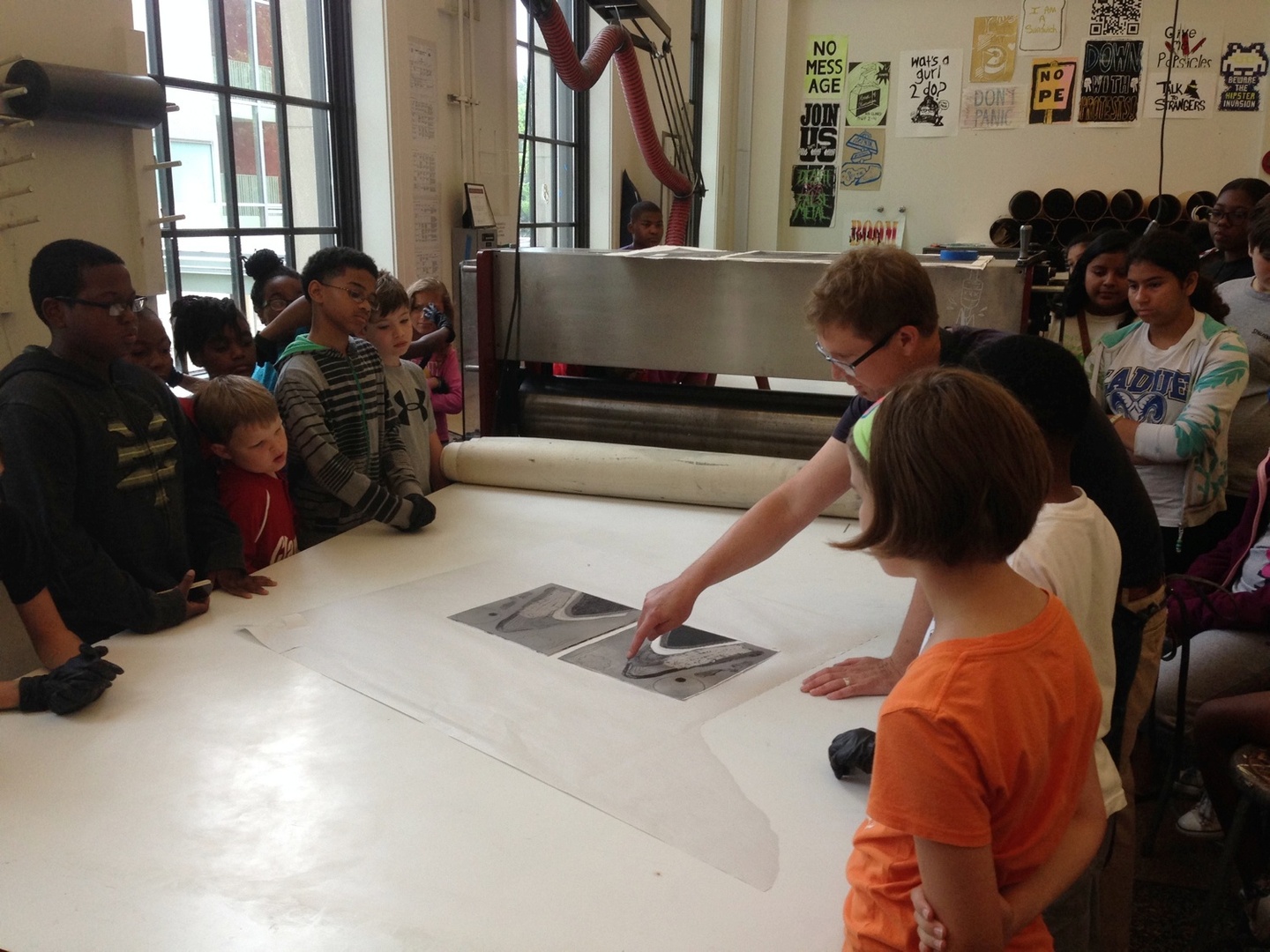Alberti Program Honored by AIA
2016-03-25 • AIA St. Louis

The American Institute of Architects (AIA) and the Office of Diversity and Inclusion recently selected the Alberti Program: Architecture for Young People as the 2016 honoree of the AIA Diversity Recognition Program. Now in its eighth year, the AIA Diversity Recognition Program recognizes architects, AIA chapters, educational institutions, and organizations that are actively committed to increasing diversity and inclusion within the architecture profession.
The Alberti Program is an educational outreach initiative of Washington University in St. Louis’ Sam Fox School of Design & Visual Arts that provides an avenue for St. Louis students ages 8-15 to explore architecture and design. This tuition-free program operates year-round: during the summer as a day camp and during the academic year as a Saturday afternoon program. The program is run by Washington University faculty and students, and includes lectures, field trips, and projects promoting hands-on exploration. Participants are provided with a free lunch or snack, attentive mentorship, and invaluable opportunities to meet design professionals and peers from other backgrounds. The Alberti Program is generously supported in partnership with PGAV Destinations, the Mellon Foundation, and AIA St. Louis.
This year’s jurors included: Gregory Burke, AIA, AIA Diversity Council (2015-2016); Brent Castro, Assoc. AIA, 2012-2013 AIAS Vice President; Roland Day, AIA, AIA Diversity Council (2014-2015); Bryan Lee, Assoc. AIA, NOMA Louisiana Vice President; and Tiffany Millner, AIA, AIA Diversity Council (2014-2015).
The honoree’s initiatives will be featured at the Diversity and Inclusion booth at the 2016 AIA National Convention in Philadelphia and will be celebrated during the Multicultural Fellows and Diversity Recognition Recipient Reception on May 21, 2016.
About The American Institute of Architects
Founded in 1857, the American Institute of Architects consistently works to create more valuable, healthy, secure, and sustainable buildings, neighborhoods, and communities. Through nearly 300 state and local chapters, the AIA advocates for public policies that promote economic vitality and public wellbeing. Members adhere to a code of ethics and conduct to ensure the highest professional standards. The AIA provides members with tools and resources to assist them in their careers and business as well as engaging civic and government leaders and the public to find solutions to pressing issues facing our communities, institutions, nation and world. Visit aia.org.